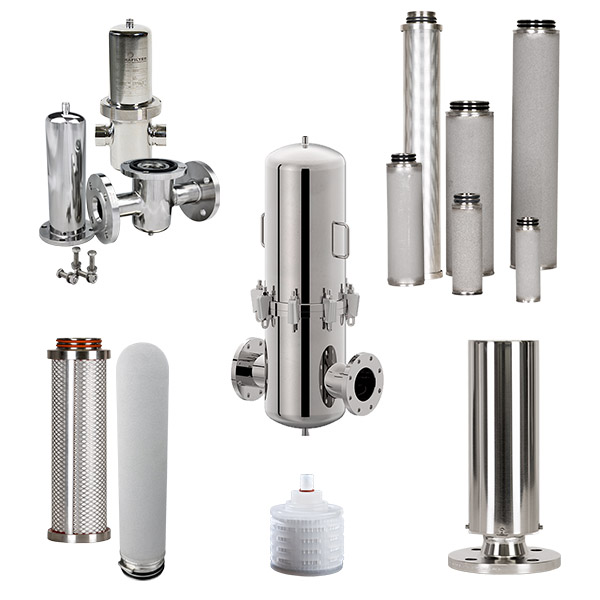When choosing liquid filters for your application, you need to consider several key factors:
- Micron rating – the micron rating determines the size of solid particles that can pass through liquid filters. In order to meet quality requirements, filters must capture 99.99% of particles with a micron rating of or better than this. Because quality filters are more expensive than nominal ones, they are often used as a final filter in a multi-filtering process. They are common in polishing stages or high-quality applications. For more information, see our blog on filtration for commercial industrial processes.
- In the case of liquid filters, the filter area exposed will have a direct impact on the flow rate. Flow rates are also affected by liquid viscosity, filter material and filter thickness. There should be a slight oversize for all filters to ensure they can handle any surges and to prevent them from becoming a limiting factor for other areas. For particularly demanding applications, our high flow liquid filters are available here.

- The filter material must be compatible with the liquid being liquid. There should be compatibility assessments performed on every element of the filter, including adhesives, seals, and filter media. Despite appearing interchangeable, polypropylene and polyester cartridge filters operate at different temperatures and have different chemical compatibilities.
- Generally, batch processes would require a filter changeout at the end of each batch, whereas continuous processes can rely on the same liquid filters for months. In batch processes, price is a major factor, but for continuous processes, a more expensive filter is often less expensive overall.
- The filter housing must be the right size and the filter must flush connect with any pipework. Availability of space for filter removal and replacement should always be considered as well.
- The pump pressure can be increased to obtain higher flow rates, but the filter must still operate within its operating parameters. To prevent damage or breakthrough, industrial liquid filters should be sized a third higher than the maximum operating pressure. A filter must be replaced or regenerated when the differential pressure exceeds a predetermined limit, but by sizing the filter correctly, the replacement and regeneration period can be increased.
- Liquids with a high solid load will require different types of filters. There may be a requirement for multiple filtration steps with progressively good micron ratings.
- Flow rate and viscosity of liquids can be greatly affected by filtration temperature. Which cartridge filter to use will depend on the location of the solid/liquid separation technology. If your environment is humid, hot, or outdoor, you should be able to use your filters at a temperature of 5 degrees above and below your normal filtering temperature.
- As a general rule, the higher the viscosity of the liquid, the slower the flow flux and the greater the need for filters. Flow rates should not be negatively affected by larger filters when viscosity increases.
